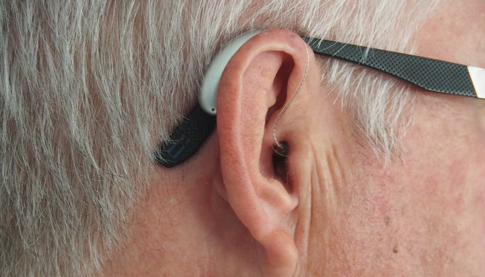What are the treatment options for misophonia and other sound disorders? Misophonia is a condition that creates emotional turmoil because of certain sounds. These triggering sounds lead to physiological responses such as fight or flight and disrupt patients’ quality of life. The actual causes of this condition are still unknown, but experts suggest that many underlying conditions can lead to misophonia. For instance, people with OCD experience symptoms of misophonia as well.
People with misophonia describe this condition as irritating. Also, many patients said that when they hear a certain sound, their heartbeat increases, breathing slows, and they experience the outburst of anger. They feel so intimidated by the sound that they can’t control their anger and rage. In this condition, they can unconsciously attack the person making the sound.
Symptoms of Misophonia and Sound Disorders
Like other sound disorders, misophonia ranges from mild to severe conditions. Many people report that they develop emotional and physiological responses to various sounds. Here are some symptoms of misophonia and other sound disorders:
- Disgust
- Urge to flee
- Uncomfortable
- Anxious
In severe conditions, a person with misophonia experiences:
- Fear
- Panic
- Hatred
- Rage
- Emotional distress
Treatment Options for Misophonia and Sound Disorders
If you are looking for a treatment for misophonia and sound disorders, many may say that you cannot cure misophonia and the disease will remain with you forever. There are ways to manage this condition, and in some cases people have been cured. Your doctor will help you identify the right technique to reduce the symptoms of misophonia. Here are some options to manage symptoms:
1. Cognitive Behavioral Therapy
Cognitive-behavioral therapy is an effective therapy that navigates physical and emotional sensations that triggers irritating sounds. With the help of this therapy, you can identify your triggers and learn ways to ignore the triggering sound.
2. Tinnitus Retraining Therapy
In this therapy, you have to wear a device in your ear that plays calming sounds. Tinnitus retraining therapy blends the irritating sounds with pleasant sounds so your brain accepts and tolerates the triggering sound. It is an effective way to reduce the ringing in the ear that you hear during tinnitus.
3. Counter-conditioning
During counter-condition, the doctor will recommend an ear device that plays your favorite song. As a result, your brain won’t be able to concentrate on the triggering sound. There are various studies to prove that counter-conditions help reduces the symptoms of misophonia. A 2015 study suggests that a woman suffering from misophonia found this technique effective.

4. Coping Strategies
There are various scoping techniques you can practice to reduce the intensity of triggering sounds. Here are some options to try:
- Politely explain the condition to the person making the sound and ask them to stop
- Practice calming techniques such as yoga
- Listen to white noise, calm sounds, and music
- Use noise-canceling headphones
Experts recommend natural sounds such as the audio of rain to provide mental peace and relaxation. Also, it helps reduce the symptoms by deluding the mind.
5. Counseling
Also, you can seek therapy with a trained health professional specializing in misophonia. As a result, you will find a space to communicate your challenges with an expert. When they understand the problems and triggers, you can learn strategies from them.
Treatment Options for Misophonia & Sound Disorders: Conclusion
Are you looking for a treatment option to eliminate your misophonia symptoms? If yes, then contact the Misophonia Cognitive Center™, where you can consult with highly experienced expert Stephen Geller Katz. Dr. Katz will evaluate your triggers and responses and recommend an effective treatment method.
To schedule an appointment, call today:
Misophonia Cognitive Center™
Stephen Geller Katz
19 West 34th Street
Penthouse Floor
New York, NY 10001
646-585-2251
Tele-Video Sessions
Speak 5 languages
International Patients Welcome

Could ERP (Exposure Response Prevention) be an appropriate and effective treatment for Misophonia?